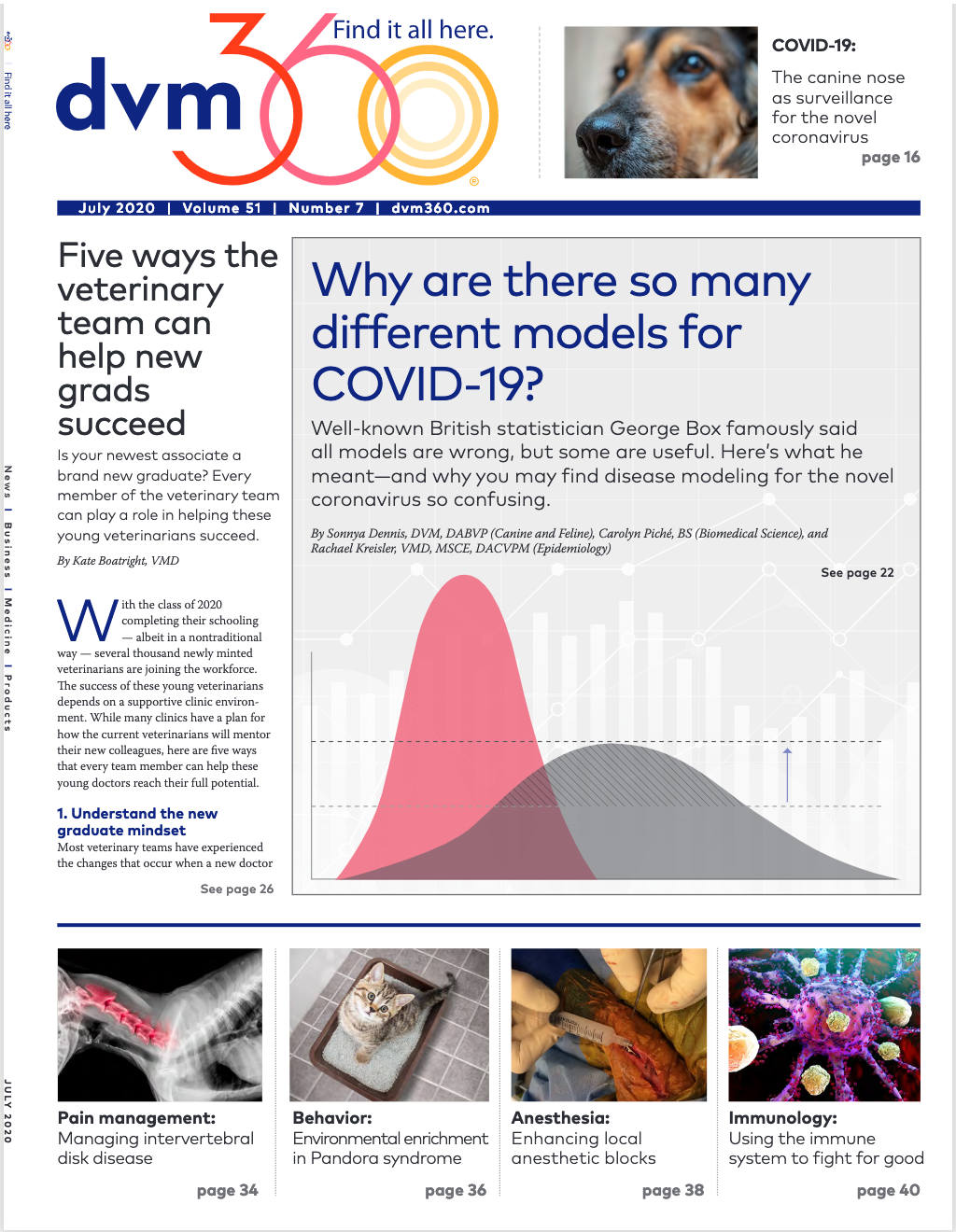New study reveals upside of pandemic shutdown for pets
COVID-19 restrictions have afforded pet owners much more time with their furry friends, leading to big changes in their attitudes toward pet ownership and veterinary care.
A new survey study from Banfield Pet Hospital reveals that spending significantly more time with their pets during the COVID-19 shutdown has altered the attitude of many owners regarding veterinary care and strengthened the human-animal bond. The survey of 1,000 U.S dog and cat owners, conducted by Wakefield Research, showed that stay-at-home orders have put the majority of owners more in touch with their pets (84%), with a significant portion (67%) planning to change how they care for their pets going forward.
“The human-animal bond now, more than ever, plays an integral role in people’s lives,” Molly McAllister, chief medical officer at Banfield Pet Hospital, said in a company press release. “At Banfield, we are firm believers that regular preventive veterinary care is key to helping our pets live happy, healthy lives. This survey shows that pets are always here for us—even, and especially, during the most difficult of times—and we’re encouraged that as a result of spending more time together, people are committed to finding new ways to better be there for their pets.”
Here are some of the survey’s key findings.
Improving pet health care
Among the respondents, 44% said they feel more responsible and attentive toward their dog or cat than ever, and 37% are paying more attention to their pet’s personal care, such as dental health:
- 41% of pet owners contacted their veterinarian during the shutdown, whether in person, via phone or through a telehealth service.
- 20% are committed to taking their pet to the veterinarian for wellness care more often.
The ‘new normal’ for pets and their owners
With the easing of stay-at-home directives, 73% of owners are concerned about spending time away from their pets when they return to work:
- More than a third of owners say their pets appear to be happier (38%) and more playful (35%) during this time. That’s not surprising given that 65% of owners say they are showing their pets increased affection.
- 47 percent of owners say they’re talking to their pets more than before the pandemic, with cat owners (51%) being slightly chattier than dog owners (47%), and women (50%) talking to their pets a bit more than men (44%).
- 59% of owners worry that their dog or cat may suffer from separation anxiety once the owner resumes a typical work schedule.
- 47% of owners are committed to spending more quality time with their pets when they are home; 21% plan to adjust their schedules to be at home with their pets more often, and 10% intend to adopt another pet to help keep their dog or cat company.
The bond builds
Nearly half (45%) of pet owners said that their household’s happiness has increased while spending more time with their pet during quarantine:
- 39% said their pet helped lower their anxiety and uncertainty caused by the pandemic.
- 47% of millennials found increased emotional support from their pets, compared with 43% of Gen Z pet owners and 43% of Gen X owners.
